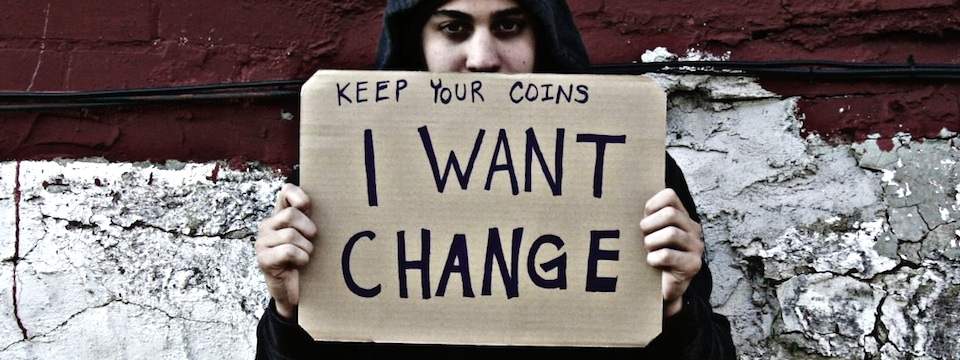The corporate way is to hide things.
Certainly, occasionally what’s being hidden is true illegality or criminal activity — but that’s not really what I’m talking about.
I’m talking about typical, “everyday” kind of stuff.
Managers might hide their reasons “why” because they can. HR might hide behind “precedent” or made-up rules or policies. Executives might hide themselves physically on separate floors or behind doors. Companies might feel pressure to hide parts of their financial picture, if only to highlight the more positive things for the next quarterly earnings call.
And then of course there are other small, “moderately unscrupulous” things. Things that would strike a person on the outside as just kind of… icky, if they were able to see what’s been hidden. (I suspect most of us either know personally, or have heard about, people “at the top” of organizations doing things that would instantly fail the “kindergarten test,” if we just asked ourselves “Would I be OK with my kid acting this way toward others?”)
But what we often miss about all of this is it isn’t just about individuals “behaving badly.” Certainly that’s part of it; individuals can absolutely make choices that are harmful. We all do this sometimes of course, even if we don’t mean to.
The larger challenge here, though, is a systemic one.
Perhaps you’ve noticed that “moderate unscrupulousness” is positively correlated with “power gained” — meaning, the more power one gets, the more “acceptable” it is for them to act just a little badly.
It’s important for us to identify this as a normal part of the standard workplace power dynamic. Put another way, “hiding things” is a natural output of fiat hierarchy. When we have systems designed to give people power simply because some people “need” to hold power over others, complicated and opaque structures are generated which permit, and somewhat encourage, the people holding power to protect their own self-interest… and, of course, this sometimes means using their power to hide what they’re doing.
And this next part is really important.
This isn’t a broken system — this is a system working perfectly, exactly as it’s been designed to.
You see, the more ladder I climb, the ever more slightly-drunk I get on the newfound power the system has granted me. It’s almost never enough to make me totally drunk — we humans acclimate pretty quickly — but is just enough corporate alcohol to make me want to swing my power around just a tiny bit more than I used to… maybe just to test it out to see if I can actually get away with it. And the answer is usually, “Wow, I CAN get away with it!” because an “extra rung up” just gave me permission to act a tiny bit more like a jerk.
Not a HUGE jerk, mind you! Just in small, mostly-imperceptible ways.
But make no mistake, these are aggressions.
They are micro-abuses of power.
And the biggest problem is: the system reinforces this behavior.
The higher I go in a fiat hierarchy the less I have to show anyone, just… because.
This is why I say the corporate way is to hide everything. It’s not because people even really want to be this way; it’s because the system itself promotes these behaviors. (Reference: Wells Fargo.) And even for really, truly good people, this kind of power is hard to resist — especially when it’s completely “normal” for leaders to hide almost anything they want behind that supremely-old-school parenting answer: “Because I said so.” (In an organization of fiat hierarchy, this sentiment is so implicitly understood it rarely even needs to be spoken out loud.)
Leaders “at the top” can do (almost) whatever they want and everyone will line up behind them, rank and file, like good soldiers, simply because it’s how we’ve been trained to respond. Ours is not to question why, but simply to obey. “Top” people are required to justify virtually nothing, and we’ve been conditioned to believe this is both normal and ok.
But it’s neither.
And this is part of what’s really hard about fundamentally changing the way we work.
It requires our leaders to become better leaders — bigger leaders — who somehow find a way to NOT care about the ladder climb, even though they’ve been told their whole careers that it is the thing that matters most.
It’s about a leader deciding to eschew their power (which is actually force in this case), instead choosing to become the listener instead of the talker and the question-asker instead of the order-giver.
It’s about leaders becoming people who are emotionally mature enough to respond instead of react, who can pause before speaking, and who will think before acting.
It’s about a leader choosing to use their fiat power to do something rather unfathomable: start to strip away the very layers of hierarchical complexity that give them unfettered power and privilege, and instead create better systems that are more fair and transparent.
It’s about waking up see see that we are ALL — leaders and followers, those in power and those without — at the affect of a deeply oppressive workplace operating system that was put in place long before we were born, and will remain long after we are gone… unless we change it into something transparent and worthy of being visible to all.



